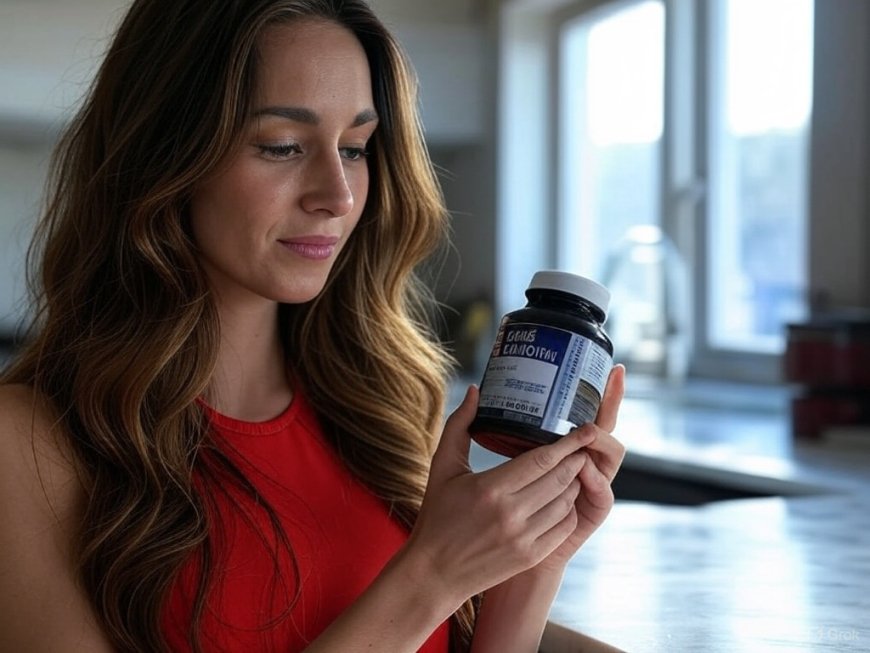Collagen Craze Uncovered: Science vs Hype in the Beauty and Wellness Boom
Is collagen worth the hype? Explore what clinical research really says about collagen supplements, from skin and joints to gut health.

Collagen Craze Uncovered: Science vs Hype in the Beauty and Wellness Boom
From glowing skin to joint health and gut healing, collagen supplements have become a staple in beauty and wellness routines across the globe. Social media influencers, beauty brands, and even fitness enthusiasts have all jumped on the collagen bandwagon. But amidst the marketing buzz, one critical question remains: what does the science actually say about collagen?
In this in-depth article, we explore the origins of the collagen craze, break down what current research supports (and what it doesn’t), and guide you through evidence-based insights to help you make informed choices.
What Is Collagen?
Collagen is the most abundant protein in the human body, accounting for nearly 30% of total protein content. It provides structure and strength to skin, bones, tendons, ligaments, and connective tissues. Collagen production naturally declines with age, starting in the mid-20s — leading to common signs of aging like wrinkles, joint stiffness, and decreased elasticity in the skin.
There are several types of collagen, but Type I, II, and III are most commonly used in supplements:
-
Type I: Found in skin, tendons, bones
-
Type II: Predominantly in cartilage
-
Type III: Found in skin and blood vessels
Why the Sudden Craze?
The global collagen market is booming, projected to reach $22.6 billion by 2030, according to Grand View Research. The rise can be credited to celebrity endorsements, influencer culture, and increased interest in natural beauty and holistic wellness.
But what do researchers and clinical trials say about collagen supplementation?
What the Research Actually Shows
1. Skin Health and Aging
Several clinical studies suggest that collagen peptides may improve skin hydration, elasticity, and reduce wrinkles over time.
A 2019 review published in the Journal of Drugs in Dermatology analyzed 11 studies and concluded that oral collagen supplements improved skin elasticity, hydration, and dermal collagen density after 8-12 weeks of use.
However, these results were most noticeable in women over 35, and supplements were most effective when paired with other skin-friendly nutrients like vitamin C and hyaluronic acid.
“Collagen supplements do seem promising for aging skin, but users need to have realistic expectations. It’s not a miracle cure,” notes Dr. Whitney Bowe, board-certified dermatologist and author of The Beauty of Dirty Skin.
2. Joint Health and Pain Relief
Collagen Type II, often sourced from chicken cartilage, may support joint health and reduce symptoms of osteoarthritis and exercise-induced joint pain.
According to a study published in Current Medical Research and Opinion, athletes who took 10 grams of collagen hydrolysate daily reported reduced joint pain and increased mobility compared to a placebo group.
The Arthritis Foundation also recognizes collagen as a potential supplement for managing osteoarthritis when used alongside traditional therapies.
3. Hair and Nails
While user testimonials are overwhelmingly positive, the scientific evidence is still limited. A small study in the Journal of Cosmetic Dermatology showed improved nail growth and reduced brittleness after 24 weeks of collagen supplementation, but more rigorous trials are needed.
Hair benefits, however, remain mostly anecdotal. Experts suggest improvements might stem from overall protein intake and not specifically collagen.
4. Gut Health
One popular claim is that collagen heals the gut lining and supports those with leaky gut syndrome. However, as Harvard Health Publishing points out, there is limited clinical evidence to support this. Most claims are based on theoretical mechanisms or animal studies.
Does the Form Matter? Hydrolyzed vs Native Collagen
Collagen supplements come in various forms — hydrolyzed collagen (collagen peptides), gelatin, and undernatured collagen.
-
Hydrolyzed Collagen: This is broken down into smaller peptides, making it more easily absorbed by the body.
-
Gelatin: A cooked form of collagen often used in cooking or desserts.
-
Undenatured Collagen Type II (UC-II): Typically used for joint support.
Most studies showing benefits used hydrolyzed collagen peptides, making this the most evidence-backed form for skin and joint health.
For guidance on choosing high-quality collagen, consult the National Institutes of Health’s Office of Dietary Supplements for best practices on supplement safety.
Are There Risks or Side Effects?
Collagen is generally safe, but some users report mild side effects like bloating, nausea, or a lingering aftertaste. People with food allergies (especially to eggs, fish, or shellfish) should check the source of collagen to avoid reactions.
Pregnant or breastfeeding women should consult a healthcare professional before use.
Expert Advice: Is Collagen Worth the Hype?
Here’s what to consider before jumping in:
-
Evaluate your diet first. Collagen is a protein — and if you already consume enough protein through food, additional supplements may offer minimal added value.
-
Be patient. Collagen benefits take time. Most studies saw results after 8-12 weeks of consistent use.
-
Combine it with healthy habits. Hydration, sun protection, and a balanced diet work in synergy with collagen supplements.
Dr. Mark Moyad, MD, Director of Preventive Medicine at the University of Michigan, told ConsumerLab, “It’s not snake oil, but it’s also not magic. Use it wisely and as part of a well-rounded routine.”
Final Verdict
The collagen craze isn’t entirely hype — there is growing, though still developing, scientific evidence supporting its benefits for skin and joint health. But not all claims are backed by solid data, especially those around gut health and hair regrowth.
If you're considering adding collagen to your wellness routine, opt for clinically-tested hydrolyzed collagen peptides, be consistent, and manage your expectations. Ultimately, collagen is best seen as a supportive tool — not a substitute for a healthy lifestyle.
Recommended Further Reading and Resources:
What's Your Reaction?
 Like
0
Like
0
 Dislike
0
Dislike
0
 Love
0
Love
0
 Funny
0
Funny
0
 Angry
0
Angry
0
 Sad
0
Sad
0
 Wow
0
Wow
0



















































